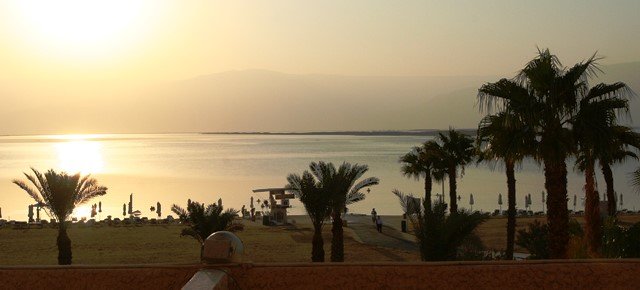Share This Story, Choose Your Platform!
In our reflections on an appropriate biblical hermeneutic, we made the decision in the first article of this series[1] that our reading of the Bible should not be determined by a theological or philosophical doctrinal system, but rather conversely that every doctrine must be measured against the Bible. Every human thought system has to face up to the standard of the biblical word.
In a second step, then, we came to realize that whatever de facto has the last word in our lives must be called “God.” Personally, I have made the decision for myself that the God of Israel, the Father of our Lord Jesus Christ, should have the say in my life. With Joshua, I would like to confess in view of the “god options” of this world: “But I and my house will serve the Lord” (Joshua 24:15).
These two decisions cannot be checked off by a one-off, full-bodied statement. They are a path that we embark on, fundamental decisions that we allow ourselves to be guided by and that we want to remind each other of. These are standards that challenge us to be accountable.
The broad lines
A further pre-decision is that the overall context of biblical revelation is decisive for the understanding of individual statements in Holy Scripture. Equally, the immediate context is decisive for the meaning of an individual statement. Anyone who presents an argument on the basis of a whole bunch of scriptural quotations torn out of their immediate context must accept the question of where he gets the overall picture into which he places the individual pieces of the puzzle.
If we formulate the broad lines that determine our thinking and contrast them with the thought structures of those who think differently, it usually becomes clear quickly, where philosophically based ideologies have taken over the position of “God” in our thinking – or whether we indeed allow the Word of God to shape our thinking. This is another aspect that cannot be ticked off once, but requires a constant chewing of the biblical word, reflection, fellowship, exchange and questioning. This also is a path.
An assignment
When we look at the broad lines, we see that God created man “in His image”, “according to His likeness” (Genesis 1:26,27) or also “in His likeness”, “according to His image” (Genesis 5:1,3).
This is the basis of an assignment.[2] Because the Creator is love (1 John 4:16), He wants to be loved by man.[3] Love, however, requires freedom, a decision, exclusivity, a will to build a relationship – against all odds. The fact that we desire precisely this for our most intimate relationships is part of our likeness to God. This human longing is a hint to the nature of the Creator.
Therefore, the Creator pauses immediately upon the completion of creation. He rests “from all His labor, which He had created in order to be made” (Genesis 2:3b). In contrast to all other days of creation, the seventh day has not yet been completed, for instance by a “and there was evening and there was morning a seventh day.”
Creation is waiting to be “made” – by us. That is our mandate to this very day. A quick look at the first chapters of the Bible reminds us that we humans were created to manage this creation. That is why we should be fruitful, multiply, fill the land and take possession of it.[4] And that is why – as the apostle Paul writes – the eager expectation of creation is for the revealing of the sons of the one, true, living God (Romans 8:19).
„Tsimtsum HaShem“
The Creator rests on the seventh day. The one, true, living God deliberately takes a step back – not because He wants to leave humans to their own devices; not because He has suddenly outgrown His creation or doesn’t care anymore; but quite simply because He wants us to learn to take responsibility, to make decisions, to rule and build and shape, that is, to “make”. The Creator wants us to become more and more like Him. And before and above everything else, underlined once again: The living God wants to be loved by us human beings – in response to His love; because He loved us first (1 John 4:19).
The Jewish tradition calls this “withdrawing”, this “self-concentration” of God in order to give His creatures space to unfold and to be able to fulfill their mission “Tsimtsum HaShem” (צמצום ה’): Retraction, withdrawal, (self-)limitation or restriction of the Lord. In this way, the Father in heaven creates space for us. He grants us the freedom to exist at all, but above all to grow and fulfill our mandate.
If He did not withdraw, if He did not limit His being, the weight, the density, the intensity of His glorious presence would simply crush us, simply blow us away. We would have less chance of existence in His presence than a drop of water on a red-hot stove top.
Whenever people encounter the living God, it is crucial that they are aware of this difference. That is why Moses (Exodus 3:5) and Joshua (Joshua 5:15) had to take off their shoes. This was put into words when describing the encounters of Moses (Exodus 33:18-23) or Elijah (1 Kings 19:11-13) at Mt Horeb. This is why Jews who are aware of the grace of “Tsimtsum HaShem” wear a head covering.
On the other hand, this “withdrawal of God” at the time of the prophet Ezekiel had the consequence that even the elders in the house of Israel could cultivate the illusion: “The Lord does not see us, the Lord has forsaken the land – הָאָרֶץ/HaAretz – “the earth!”[5]
Throughout history, the phenomenon of “Tsimtsum HaShem” has brought forth quite different symptoms. Just recently, a clergyman friend of mine wrote to me that he had “read several articles in the Deutsche Pfarrerblatt that argued that we can no longer speak of a personal God in our modern times.” It is remarkable that in our present age it is sometimes the most intelligent people who indulge in the illusion that there is no God at all. King David had simply described such people as foolish and stated that something must have been corrupted in their thinking and actions (Psalm 53:2).
When the Lord of lords becomes a slave
In the first verses of the second chapter of his letter to the church in Philippi, Paul describes the positive aspect of this phenomenon, that the living God withdraws Himself. This is a posture that is reflected in Messiah Yeshua. This is an attitude that we ourselves should emulate. This self-renouncement up to the point of self-abandonment should become a part of our being.
The prophet Ezekiel describes another, more negative side of the phenomenon that the living God restrains His presence. Through the “Tsimtsum HaShem” it becomes possible for the name of God to be desecrated in Israel itself, but then also through Israel and thus before the nations. Because God’s people have forgotten how to pray “Hallowed be Thy name” and to commit themselves to it with their whole existence, God must hold out the prospect that He Himself will put a stop to the desecration of His name and again sanctify His name.[6]
The one, true, living God, who is Himself the absolute light (1 John 1:5), “forms the light as a potter forms the clay and creates darkness” by withdrawing Himself (Isaiah 45:7). Equally, He “makes peace and creates evil” by limiting His actually overwhelming presence and retracting Himself.
Worse than hell
God withdraws furthest when He hides His face. The mention of the הסתר פנים/Hester Panim (hiding of the face) of God runs through the entire Holy Scripture. Israel has had to experience this time and again in terrible ways throughout its history.
When God hides His face, it is worse than any imaginable judgment. It is the worst kind of hell when God “gives people away” (Romans 1:24,26,28), simply letting them run and leaving them to their own devices. Therefore, the people of God asks fervently: “Let your face shine upon us!”[7]
The way of thinking of a Creator who withdraws himself in order to give his creatures the opportunity to make their own decisions and scope for action also corresponds to the view of the New Testament. This becomes apparent, for example, when Jesus speaks of the kingdom of the heavens and compares it to a person traveling abroad (Matthew 25:14-30; Luke 19:12-27).
This observation that the Creator has been withdrawing further and further from His creation since the beginning of the 7th day of creation, to enable us humans to take responsibility as His image has fundamental implications for our understanding of revelation and thus for our reading of the Bible.
Footnotes:
[1] You can find the entire series on our website https://gerloff.co.il/en/english/ under (at the top of the menu) “Articles” – and if you then click on the “Hermeneutics” category above the images illustrating the individual articles. So after the inviting introduction (https://gerloff.co.il/en/invitation/), the first article is https://gerloff.co.il/en/discipleship/.
[2] Genesis 1:26, 28; Ephesians 4:24; Colossians 3:10.
[3] Deuteronomy 6:5; Matthew 22:37; Luke 10:27.
[4] See Genesis 1:26, 28; 9:1, 7; but also Psalm 8:5-9.
[5] Ezekiel 8:12; also Ezekiel 9:9.
[6] See this motif in Ezekiel 20, for example.
[7] Psalm 4:7; Numbers 6:24-27.






















